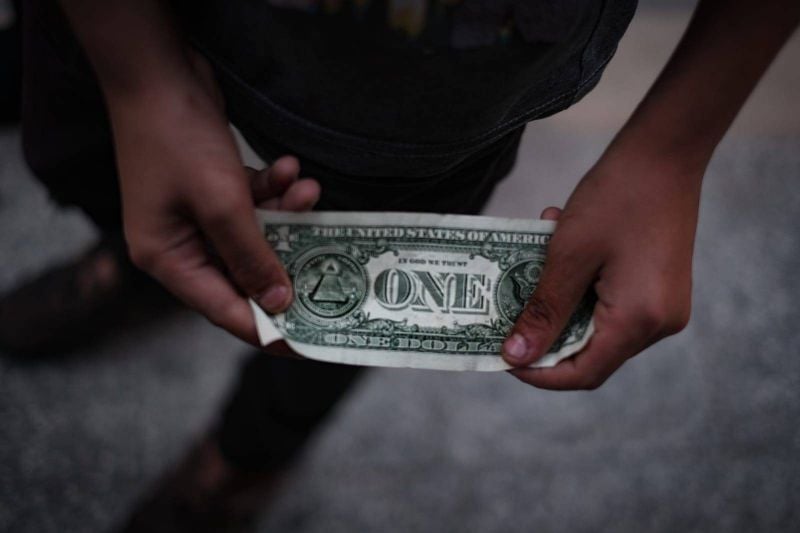
A man holding a one-dollar bill. (Credit: João Sousa/L'Orient Today/File photo)
BEIRUT – On Thursday, Jan. 25, members of Parliament gathered for a second day to discuss Lebanon’s draft budget for 2024. In an unprecedented move since the mid-2000s, Parliament could actually ratify the budget on schedule and according to preset constitutional deadlines.
Sixteen out of 40 MPs had taken turns to speak during the first – rather heated – parliamentary session held on Wednesday.
The remainder of the members each took the stage to voice their concerns regarding the draft law, in its current form.
MP Halime Kaakour kicked off the speeches, expressing deep concern over the fact that the government intended to generate 77 percent (up from 55 percent in 2019) of its revenue through various taxes (such as the VAT), which have been deemed regressive and likely to impact medium-to-low income earners the most.
“The economic vision of the draft budget is to prolong the country’s collapse,” she noted, adding that the text contained no measure to fight tax evasion because “that would threaten” the wealthiest officials and “big traders who are infringing on the law.”
MP Alain Aoun further stressed the importance of enhancing the collection of taxes, rather than increasing its burden upon those who have been lawfully paying their dues.
The new amended version of the draft tweaked numbers to wipe away the budget deficit. Aoun criticized the draft’s structure which he says is built on the excessive reduction of necessary public spending, not forgetting its failure to mention any substantial reform.
For MP Cynthia Zarazir, the draft budget was nothing more than a gimmick put forward by the ruling class to appeal to the International Monetary Fund (IMF), and secure future financial aid.
“They want the IMF’s funds, but they [the politicians] do not want to abide by their demands,” she added.
Other MPs took the stage to voice similar concerns, highlighting once again the budget’s lack of vision.
In an article published on their website, Lebanese think tank The Policy Initiative (TPI) shed light on the short-comings of a budget that seeks to increase regressive taxes and decrease progressive ones.
“The current budget draft sizes revenues from domestic taxes on goods at $1.6 billion, which is 20 percent higher than the cabinet’s version, and revenues from customs at $360 million, which is more than twofold higher,” stated TPI.
The budget is set to also “deprive the state of revenues by exempting large business” from paying taxes, and falling short of providing “the means to address the social crisis” currently prevalent in the country.
MP Hadi Aboulhosn announced that the session to vote for the budget – article by article – will be held today Friday, Jan. 26, at 3 p.m.
Prime Minister Najib Mikati is scheduled to start the session providing the government’s response to the various claims and concerns put forward by the MPs over the last two days.